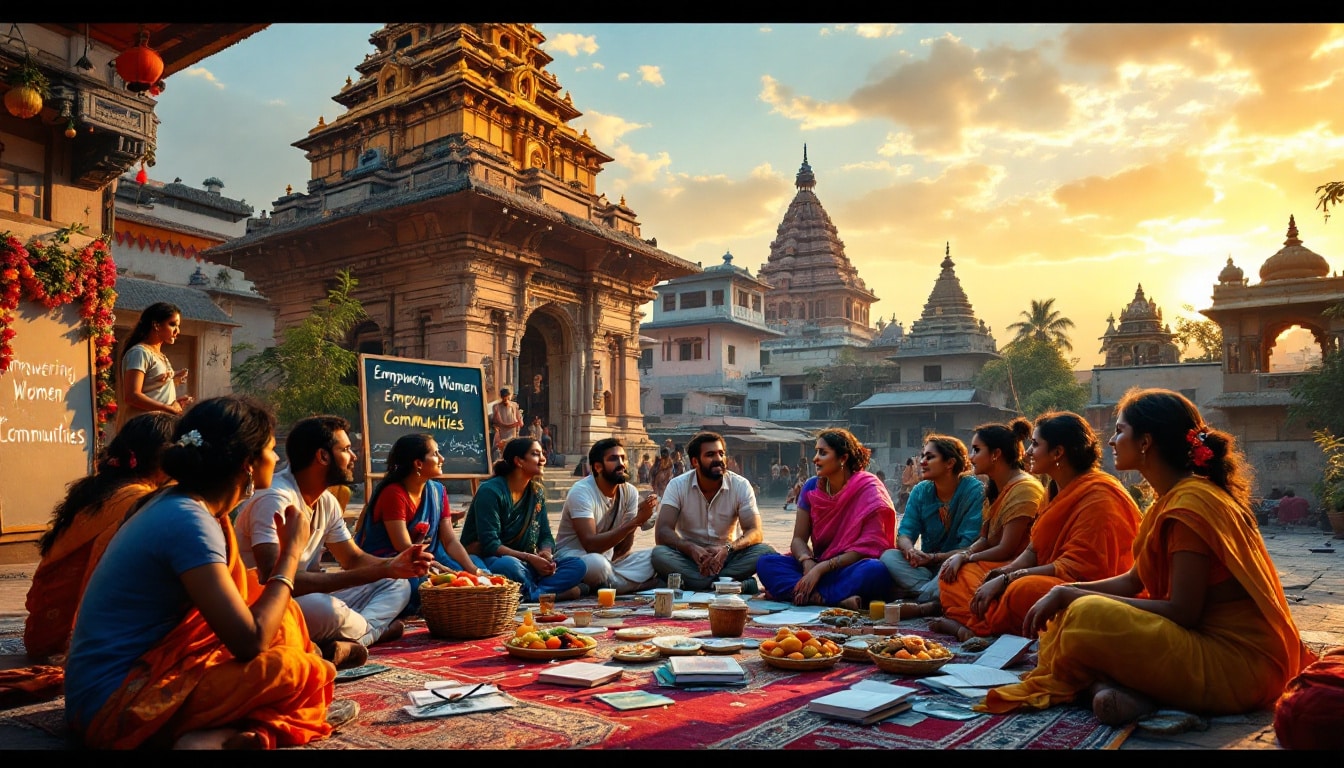The history of Maharashtra resonates with bold initiatives where cooperation transcends mere exchanges to become a true vector of social change. At the intersection of gender, activism, and mutual aid, voices rise to redefine models of solidarity. These unprecedented struggles foster the emergence of a support network that highlights the challenges and triumphs of women, while posing essential questions about equality and justice. Together, they carve a path towards a more inclusive and fulfilling future.
Summary: Beyond Cooperation
In the epilogue of Beyond Cooperation, we discover how gender, activism, and mutual aid interweave to strengthen social dynamics in Maharashtra. This work emphasizes the importance of integrating gender perspectives into solidarity and cooperation actions, illustrating how community engagement can catalyze significant changes. Through concrete examples, it highlights the challenges and successes of mutual aid groups working for equitable and inclusive development, thereby transforming traditional power relations and promoting genuine solidarity among individuals. This inspiring look at initiatives in Maharashtra invites us to rethink our approach to cooperation in a constantly evolving world.

Beyond Cooperation: Gender, Activism, and Mutual Aid in Maharashtra
Maharashtra, a state in India, presents a fascinating picture of cooperation and social challenges, particularly concerning gender dynamics. Through local initiatives, women have successfully organized and created networks of mutual aid. The impact of these movements extends from cooperative banks to empowerment programs, thus giving voice to women who often find themselves marginalized in the professional sphere. These advances demonstrate how cooperation can transform lives and stimulate a local economy.
The Challenges of Gender and Activism
The obstacles related to gender in Maharashtra are not limited to reductive sociocultural norms. Many women face a system that favors inequality rather than social justice. Statistics reveal a growing gap between the opportunities available to men and women. However, a growing number of activists and women’s groups strive to reverse this trend. Through rights advocacy movements, they manage to draw attention to injustices and demand necessary reforms to ensure genuine equality.
Mutual Aid and Resistance Strategies
The mutual aid strategies that women in Maharashtra have adopted represent a formidable model of resilience. Support and mutual aid groups play a key role, offering a safe space to share experiences and resources. These initiatives also provide a counterbalance to traditional activism, highlighting the importance of solidarity within communities themselves. Cooperatives play a vital role in facilitating access to financial resources while exchanging knowledge and skills, thereby fostering an environment conducive to women’s empowerment.









